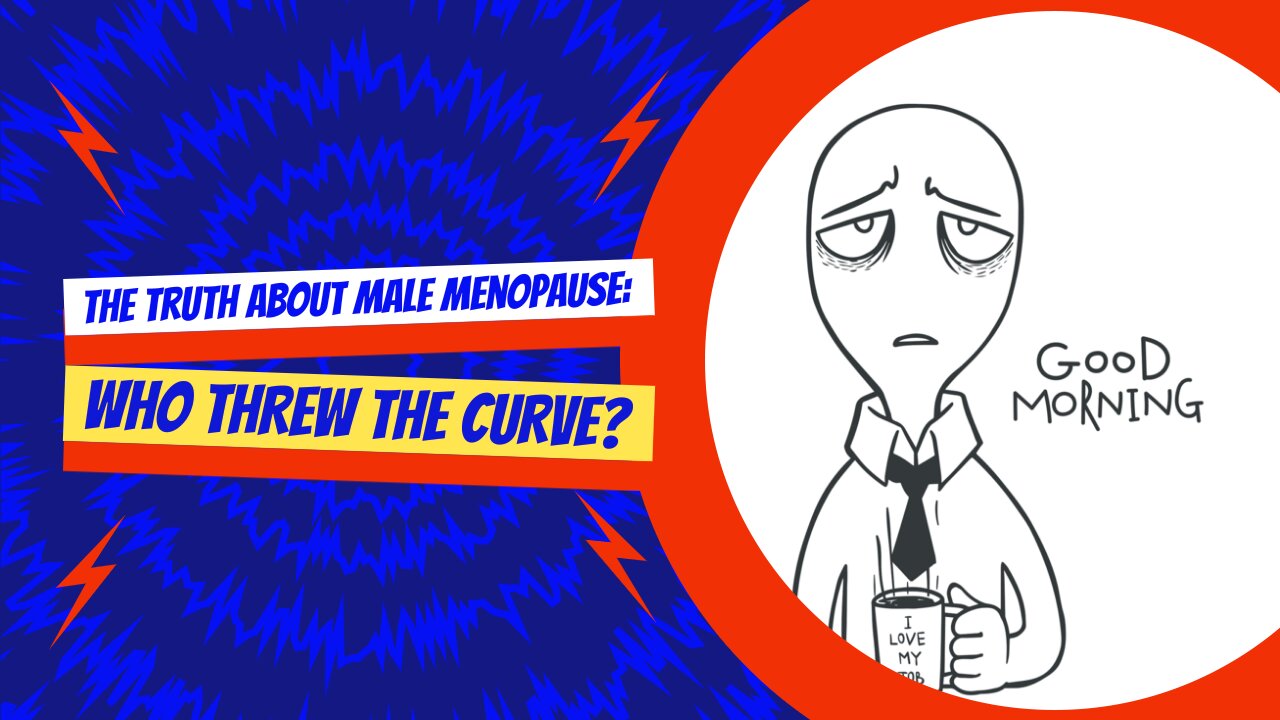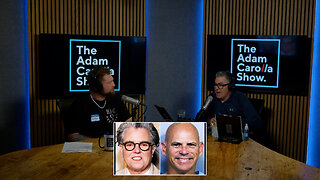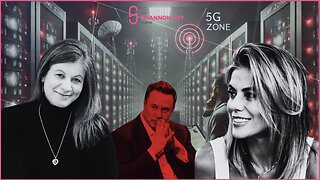Premium Only Content

The Truth About Male Menopause:
The Truth About Male Menopause: Unpacking the Science, the Myths, and the Psychological Realities
The term "male menopause," also known as andropause, has gained traction in popular culture as a description of age-related changes in male hormone levels. But is it accurate to parallel this phenomenon with female menopause, which is a well-defined period marking the end of a woman's reproductive years? This essay aims to dissect the science, myths, and psychological realities surrounding male menopause, thereby offering a nuanced understanding of this contentious topic.
The Terminological Debate: Menopause vs. Andropause
First and foremost, the term "male menopause" is somewhat misleading. Unlike female menopause, which is a distinct phase characterized by the cessation of menstrual cycles and fertility, the term "male menopause" is not universally recognized by the medical community. The more accurate term is andropause or Late-Onset Hypogonadism (LOH), which describes a decrease in testosterone levels that some men experience as they age.
The Physiological Angle: What Does Science Say?
Male menopause is often equated with a decline in testosterone levels. It's important to note that testosterone decline in men is gradual, occurring at approximately 1% per year from the age of 30 or 40. This is a stark contrast to the abrupt hormonal changes that women undergo during menopause. Not all men will experience a noticeable drop in testosterone levels, and many who do will not exhibit any symptoms. Even among those who do experience symptoms—such as fatigue, low libido, and mood swings—these may be attributed to various other factors like medication, sleep problems, or chronic stress.
Moreover, testosterone replacement therapy, often marketed as a solution to male menopause, has produced mixed results. While some studies indicate an improvement in mood and libido, there is insufficient evidence to suggest that it can reverse aging-related physiological changes. Additionally, there are risks involved, including potential exacerbation of pre-existing conditions like prostate cancer.
Debunking Myths
The media has played a significant role in propagating misconceptions about male menopause, often highlighting it as a severe medical condition warranting immediate treatment. This has led to an increase in unnecessary prescriptions for hormone replacement therapies. The stigmatization has also led many men to associate normal aging symptoms with a medical disorder, which can have negative psychological effects.
The Psychological Realities
The idea of male menopause intersects with complex psychological and social issues. Men may feel societal pressure to maintain levels of virility and productivity, causing a decline in hormone levels or even just the fear of such a decline to be a source of significant stress or shame. Understanding this emotional burden is crucial for healthcare providers and family members, who should approach the topic sensitively and help to delineate the boundary between natural aging and symptoms that might require medical intervention.
In summary, while it's evident that some men experience symptoms consistent with a decline in testosterone levels, labeling this phenomenon as "male menopause" might be misleading and even harmful. An indiscriminate approach to treatment, especially with hormone replacement therapies, can pose risks. A better course of action is a nuanced, individualized approach that takes into account the physiological, psychological, and social factors contributing to each man's experience. This allows for a more holistic form of care and spares men from the pitfalls of unnecessary medicalization and the negative psychological impacts that might accompany a diagnosis.
By educating ourselves on the intricacies of male menopause—or more precisely, andropause—we can hope to improve not only the medical care for aging men but also their quality of life.
#MaleMenopause #Andropause #LateOnsetHypogonadism #Testosterone #Aging #MensHealth #HormoneReplacementTherapy #MedicalMyths #PsychologicalImpact #HolisticCare #Healthcare #QualityOfLife #SocialStigma #ScienceVsMyth
-
 1:30:39
1:30:39
Simply Bitcoin
4 hours ago $1.18 earnedFED INSIDER Caught on HIDDEN Camera! (Fed Sabotages Bitcoin Bull Run?) | EP 1228
15.5K1 -
 48:16
48:16
Sean Unpaved
3 hours agoDraft Deals, Luka Takes, and Playoff Heat: NFL, NBA, & NHL Ignited
38.2K2 -
 10:33
10:33
Congressman Eli Crane
4 hours agoUnrestricted Warfare: Inside the CCP's Plot to Take Down America
32.5K5 -
 1:51:23
1:51:23
FreshandFit
2 days agoCollege Campus Debate
73K46 -
 1:02:32
1:02:32
Timcast
3 hours agoSCOTUS Hears Case On LGBTQ Books In Schools As Nike FUNDS Trans Study
161K109 -
 2:02:22
2:02:22
Steven Crowder
6 hours agoRace Conflict: Karmelo Anthony and the Truth About Black & White Relations in America
441K358 -
 1:32:33
1:32:33
Rebel News
2 hours ago $1.94 earnedPoilievre on Canada's 'dangerous future', Singh dodges again, China targets Tory | Rebel Roundup
43.4K11 -
 1:17:18
1:17:18
TheAlecLaceShow
4 hours agoGuests: General Flynn & Dr. Michael Schwartz | Pope Francis Died | Hegseth Out? | The Alec Lace Show
26.3K11 -
 32:25
32:25
Adam Carolla
8 hours ago $2.54 earnedMenendez Brothers update and one's tie to Rose O'Donnell | The Adam Carolla Show | #news
44.3K2 -
 1:28:03
1:28:03
The Shannon Joy Show
5 hours ago🔥🔥Hacked & Stacked: Musk Aligned Tech Bros Poised To Cash In On ‘DOGE Hackathon At IRS’ Amidst Growing Health Concerns About Data Processing Centers & EMF Radiation - Special Report On EMF With Dr. Basima Williams🔥🔥
37.8K2